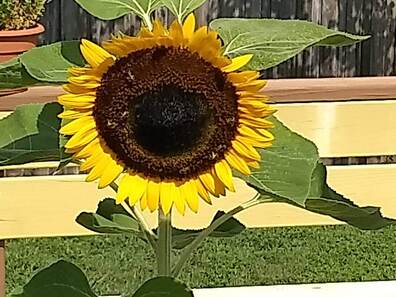 Baby birds chirp from moss-draped oaks and ducklings scurry after their mothers at the pond. Blooms explode in beds. Wildflowers pop up in yards. Butterflies and bees flit from my sunflower to Purple Queen, then travel to my neighbor's yard to sample their plumbago. I'm energized by nature, so you'd think all this new life and activity would inspire my brain to spin story. It hasn't. A couple weeks ago, I brainstormed a story with my agent and I was excited by the ideas it sparked. The story had a relatable protagonist, an intriguing premise and the potential for a satisfying outcome. The setting was moody, mysterious and a little quirky. There was a touch of magic. The magic grew and grew, and the plot took unexpected turns. As the story developed, my shoulders and neck tensed, and panic crept into my head. I asked myself why and had a revelation. I had allowed my imagination to veer too far from my life experience, and the story began to feel forced. For me to write authentic story, it needs to grow from people and experiences I relate to, and the magic needs to evolve organically. It's a valuable lesson. It helps me know myself better as a writer, and I hope it will help me write better books. But it wan't easy giving up that story. I'm restless and anxious when I'm not productively creating. I have another story started. It's growing slower than I'd like, but I'm trying to be patient. I think I'll go outside and commune with the flowers and bees. Maybe they'll buzz plot to my muse!
0 Comments
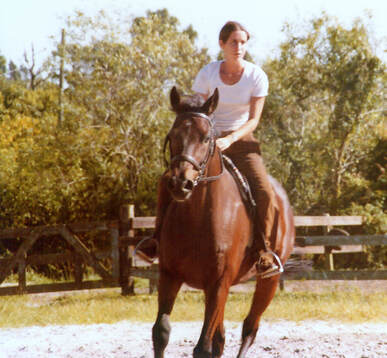 This is me when I was young and honestly, a little too carefree. It's never a good idea to ride without a helmet. This is me when I was young and honestly, a little too carefree. It's never a good idea to ride without a helmet. I'm finishing a book about a young artist who loves horses. She discovers her possibilities with the help of her art and these glorious animals. Just as art and horses empowered me. Spring in Florida makes me long for a horse, endless trails and country roads shaded by moss-covered oaks. It's been a long time since I've had a horse and I don't live in the country anymore. I live in a city surrounded by ocean. These last few weeks, shut in the house to escape a disease, I've stood in my small backyard and longed to ride away. It's not that I'm unhappy with my life. I'm very happy. But on a horse, you can lose yourself in the natural world. I had my first horse when I was fifteen. On weekends, we traveled for hours through central Florida orange groves, over blossom-scented hills and along wooded pathways. Later, when I was a young adult, I took a job on a show horse farm. My heart caught fire. I couldn't learn fast enough all I didn't know about horses and horsemanship. I lived and breathed horses, talked horses at every meal, dreamed of nothing but horses. That summer job between college semesters became a two decade career in training horses and teaching people to ride. I eventually returned to school and earned a fine art degree. I used it to paint portraits of horses and their people. These days, I'm cloistered indoors with the rest of the world, afraid to breathe other people's air, afraid to touch anything outside my house. As I sit here, staring out the window at this fine Spring day, I finish the edits on my book and remember. I may be far from a stable and shaded trails, but inside my mind, I hear and smell horses. 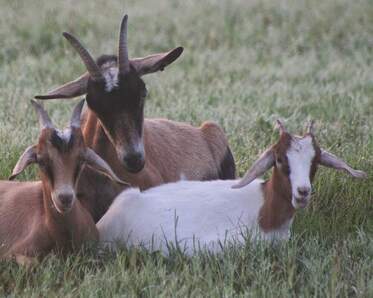 What does a writer blog about in a pandemic? I've seen lots of blogs about how to carry on with writing, how to keep mentally healthy and forgive yourself for not being as productive. We're all feeling lost and off balance. Writers and artists might have some advantage. We're used to isolation. Most of us need it to create. But we also need stimulation and support. I miss critiquing manuscripts over coffee and muffins with my writing partners. This week we'll Skype for the first time and critique online with our coffee at our desks. Can you imagine enduring the plagues of the past when there was no internet? We're the first generations to experience a worldwide epidemic and stay connected. It's a test of the internet's scope and of our tolerance for digital contact. The term social distancing is kind of indicative of internet relationships. We can see and hear each other, but we can't touch. What will we be when we emerge from this pandemic? Will we be leery of showing our physical self to the world? Will we be shy of standing too close, of daring to touch another? Will hugs feel scary instead of comforting? I'm a major introvert, so in some ways this isolation is a relief. I don't have to work up the courage to present myself to the public. I don't have to worry about my schedule becoming too crowded and have to talk myself out of panic. I don't have to make excuses when I'm too overwhelmed to accept an invitation. But I worry about total isolation becoming too comfortable. I treasure the relationships I have. I don't want to lose the comfort I've worked hard to feel when I'm with the people in my life. So this week when I Skype with my group, I'm going to strive to come to the meeting with the self I'd bring in person. And I'm going to keep imagining the day when we once again gather. I hope you are all well and finding meaningful ways to connect. For the first time since I joined my critique group the Skyway Writers, we took a summer hiatus. Most of us are traveling, restoring body and spirit, feeding the muse with new sights and experiences. We keep in touch through email and social media. Writing is never far from our thoughts and if there's a need, we're available for input on book projects.
Although I didn't leave town, I did honor my muse with a summer conference, a mini workshop and trips to art shows and bookstores. And I wrote. Still, July felt like a creative desert. It stretched long and hot, and I squinted to see the end. I missed my group. I guess I'm slightly addicted. We're a seasoned, serious group. There are five of us, three with books published and two with agents working to sell first books. We aim to publish books until the day we die. And we want them to be good books, so we hire freelance editors to review our work. But before agents, editors or readers see our pages, we look for a thumbs up from each other. We meet every two weeks. If we have pages we want reviewed, we offer our best effort. When we give input, it's presented with love and sensitivity, but fully loaded with honest critical feedback. Every book is a journey and we travel that path together, sharing triumphs and failures that weave into our bond. Twice a year, we retreat to a quiet rural spot where we write, brainstorm and gather around food. For three days we share a guest house on a lake and our muses run free. As the sun goes down and the stars appear, we come together to discuss, celebrate and laugh. Having good writing partners is a blessing I'll never take for granted. Not all groups are alike. It can be a challenge to find the right fit. But a tight knit, productive group doesn't happen overnight, so if you're in a group you're not satisfied with, it might be worth the effort to help it grow. In my next post, I'll talk about what I've learned in a decade of critique groups: what makes them work, what pitfalls to avoid and how to make them flourish. Next week, the Skyway Writers will reunite. Energy will pass between us, and when I leave, I'll be refueled. It will feel like walking out of the desert and into the sea.  That photo is hard for me to look at because of the feelings it evokes: sadness, loss and longing. Photos do that. So can books. I recently did a workshop with screenwriter and New York Times best selling author Stephanie Storey. What struck me in her talk was the emphasis on bringing EVERYTHING when depicting emotion in a character. It's easy to capture emotion in a photo of beloved dog. In writing, it's so. Hard. To. Do. My critique group partners and I talk about this all the time. We love books because of the emotional connection, but we struggle to write emotion in depth. In a recent Society of Children's Book Writers and Illustrators Insight interview, author Stephanie Garber said that it isn't a colorful cover or favorite genre that makes us keep reading a book. It's the feelings we connect with. She believes feelings are the heart of books. Although I love novels with fantastic world building and intriguing plot, I agree with the Stephanies. What keeps me reading past midnight, what makes me slow down when I near the end, what makes me long for more pages, is my relationship with the character. I want to love a character so much, I dread every bad moment. I want to fight not to close my eyes when danger threatens. When their heart is broken, I want my tears to be unstoppable, and when they triumph, I want my heart to soar. I think most writers try to achieve this and most succeed on some level. But few accomplish a heart-stealing read. I repeatedly ask myself why. I WANT, yes with capital letters, want to write that kind of book. But how do I make that happen? Stephanie Storey goes to great lengths to explore her character's emotions. She visits museums as her character, takes online personality tests, even sees a therapist as her character. She says writers need to bring their deepest, most vulnerable feelings to the page. The part of themselves they're afraid to show to others. Those feelings are what make characters real. So easy peasy, right? Bringing everything means revisiting places in ourselves we'd rather forget. It means remembering painful moments in great detail. So, no, it isn't any more easy or fun than looking at a photo of a dog I lost at a difficult time to a pain-riddled disease. But for books that stay with readers long after they return to shelves, we must go there. 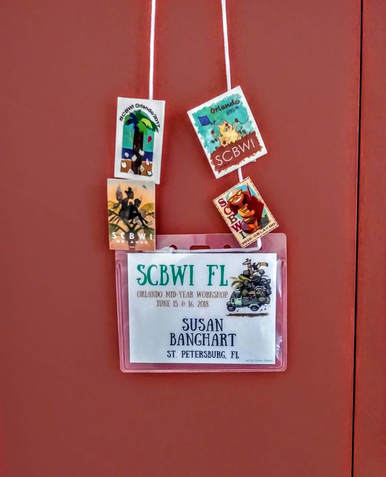 When I was a new writer, dreaming about the books I would write and what they would become, I came to conferences hoping to learn. I was in starstruck awe of everyone, from the seasoned attendees and published authors to the agents and editors. After a few years, I came to conferences hoping to be inspired and learn something from workshops, but I also hoped to earn critiques with agents or editors who might be interested in my work. I knew some of the authors and quite a few attendees. The agents were familiar from the lists I had researched to query my manuscripts. I was no longer starstruck, but I had great respect for authors, agents and publishers. A couple weeks ago I attended Florida's SCBWI summer conference as an agented writer with a book on submission to publishers. My respect for everyone in the children's book world hasn't diminished, it's grown. I'm in awe again, not starstruck-new-writer awe, but the kind of awe that comes from learning how hard everyone, from regional volunteers to agents and editors, works to make published books happen. As I sat in the conference gathering room, waiting for seats to fill and our Regional co-leader Linda Bernfeld to welcome attendees and send us off to workshops, I realized this year was different for me. I was no longer here just for learning or publishing opportunities. I was here because of the people. The writers, young and old, new and seasoned, published and unpublished. We need each other, and I'm one of those seasoned writers now. I want to support new attendees. I want to support the regional volunteers who devote hours and hours for the good of children's writers. I want to be a link in the bond that weaves us together and makes us strong. 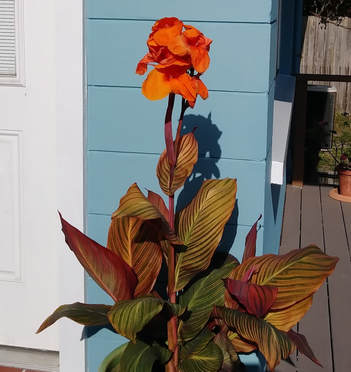 Summer is a time to embrace the outdoors and growing things. I love hanging out with plants. There's so much color and texture in a garden and fascinating paths to explore, from the tiny trail of ants to stepping stones that lead to gates and doors. And everywhere you look, there's a vivid picture or story. I can't go into my yard without seeing a void that needs a spot of color, tall, linear plant or a twisting pathway. When it came time to paint our house, I asked the blooming plants what color they'd like. They picked a medium blue with green tint. Now, my calla lilies, allamandas and Hawaiian Tis are preening and strutting in front of the walls, and the house seems happy with the color. Treating my home and garden as a work of art isn't something I think about, it just instinctively happens. I'm not alone. Many creative minds apply fertile imaginations to their environment. Frida Khalo's home demanded attention just as she did. Called La Casa Azul after the vivid blue color on her walls, her garden complimented the color, or vice versa. Maybe she consulted her plants before she chose that hue. I know she loved them. In self-portraits, blooms from her garden crowned her hair. The New York Botanical Gardens was so fascinated with Frida's planting skills, in 2015 they recreated her home and garden (see above). Beatrix Potter was fascinated with plants, fungi and wildlife and she drew them in exquisite detail. From that love, Peter Rabbit sprang to life. Beatrix was a farmer and a conservationist and she created more than one stunning garden. Many writers escape to their gardens to work. Dylan Thomas penned his poems from this shed overlooking the Taf estuary in Wales. Roahl Dahl admired this shed so much, he recreated it in his garden.
Someday, I hope to add a writing shed to my garden. In the meantime, I'll keep asking my plants what they'd they'd like next. PHOTO ATTRIBUTIONS: The Blue House by Peter Andersen / CC BY-SA Hill Top, Near Sawrey by diamond geezer / CC BY-NC-ND 2.0 Dylan Thomas Writing Shed by wardyboy400 / CC BY 2.0 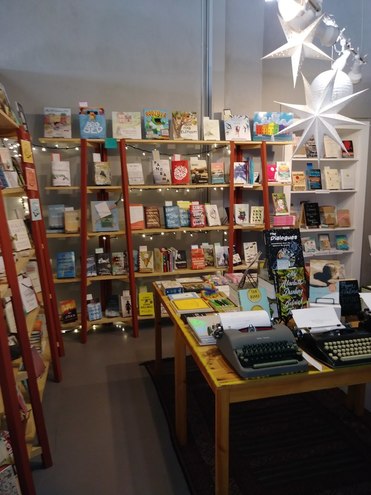 Until I began my journey as a writer, I never fully understood what it took to create a novel. I knew writers had to write them and publishers print and bind them, but I imagined it as a charmed process, with ideas springing to life on the page. Painlessly, seamlessly, in the blink of an eye, there's a book. If you're an author or someone who supports authors, I'll give you a minute to stop laughing before we continue. Done? Okay, let's move on to reality. Most books take years to achieve. First a writer has to learn how to write a good story. That is not a speedy or painless process. Part of that education is writing books. All of them start with an intriguing idea. It may ferment in the author's head for decades before it grows big enough to be a first draft. First drafts take some people months and others, a year or longer to write. And revision, please, lets talk revision. How many drafts is enough? I don't count anymore. My critique group gets my second draft to review. Then I analyze plot and character arcs, map scenes, scribble notes all over the place. Many drafts later, my agent is allowed to see it. Of course, she has suggestions, all of them excellent, for making a better story. Yesterday, after a month or so of brainstorming and revising, I sent my manuscript back to her. I'm waiting for her response. Is it ready to take the next step, be submitted to publishers? Often, I hear books being referred to as babies, birthed on the day they're offered to the public. But I think they're born when they're released from the author's head. My story is now a toddler, taking wobbly steps, hoping to grow into a real book. This is what it looks like today: This is what I hope it grows up to be, a beautiful middle grade book, like my friend Augusta Scattergood's. If you're an aspiring author, I wish you courage and perseverance, and the confidence to believe in your abilities and your books. If you're not a writer, but you love books, I hope you'll treasure them all the more, knowing how hard they worked to reach you.
 I've been querying agents for about eight years. When I started, I kept a hand-written journal, noting the dates and responses I received from my list of carefully researched agents. The last two years, I abandoned my journal for a digital spread sheet. February 12, 2018, I typed the final entry: SIGNED WITH MY AGENT! Ten years learning to write. Four novels queried. Over ninety queries sent. Seventy-one rejections. One offer to represent. The other nineteen agents were informed that I signed with an agent, so I don't know how they would have responded to my work. I've always learned from and been inspired by posts about authors' journeys to acquiring an agent, so I thought I'd share a bit of mine. When I submitted my first book, I had no idea how far I was from being ready. I sent off the requested pages, along with a horrible synopsis. I'm sure it was the easiest rejection of the day for every agent on my list. Was I crushed? Yes, but I moved on. I took online classes, read books on craft, joined two critique groups on top of the one I already belonged to, thinking I'd learn three times faster. And I revised over and over and over again. Five months later, I submitted my first book again, but more cautiously and to fewer agents. I received two requests for partials. Jump for joy, progress! In the end, they all rejected my dear book. So I set it aside, thanking it for all I'd learned. A year or so later, I queried my second book. By this time, I expected the rejections, but they stung just as much. I took my book to workshops and conferences, read more books on craft and listened to critique partners. By the third book, I knew how much I didn't know and was intimidated by how much I had to learn. I considered an MFA, but, given a writer's earning potential and our budget, I couldn't rationalize spending the money. So I plugged along the path. I knew quite a few published authors by now, and it was wonderful to celebrate their new books. It was also growing harder to imagine my books ever sitting next to theirs on a shelf. I learned to write lovely prose and create enticing concepts. Yes, the third book was also rejected when I queried. But two agents said they'd like to see more of my work! And I discovered something crucial in the agents' responses, the weak spot I needed to focus on . . . structure. I needed to learn how to plot. So for my fourth book, I chose a story that would fall apart without a well-conceived plot. Ignoring the urge to create pretty writing, I gave my character a concrete goal and charged towards that goal on an armored-horse with a lance in hand. I worked on that book for almost two years. It won Florida's 2018 Rising Kite contest. I submitted it to agents the week after and was offered representation one week later. Here's what I learned from this journey: Read new books in the age category that's your focus. Read award-winning books. You don't have to analyze them, but become familiar with what kids are reading today, and soak up the way good stories are told. Learn everything you can about writing for children. There are many good books on craft to choose from. Join the Society of Children's Book Writer and Illustrators. Jump on their forum, ask questions and participate in discussions. Attend SCBWI workshops and conferences for motivation, education, networking and opportunities to pitch your book to editors and agents. Find a good critique group. Your local SCBWI chapter can help with that. Critique partners not only help you grow your book, they help with query letters and they're there to support you. Writers understand writers. When you're facing an inbox of rejections, agents can seem like the enemy. They're honestly not. They work weekends and nights, shuffling through massive piles of queries. They give up their days off because they want to find their next client. They want to find stories they love. So, before you send a query, ask yourself if it will shine in that pile of hopeful submissions. Learn what you can from rejections. If an agent responds with a personal comment, read it carefully. Decipher it. Has she said I'm not relating to the character? Study character emotion and how to put that on the page. Did she not connect with the concept? How can you make it more original and dynamic? Perseverance is your best friend. Embrace it. Feed it vitamins. You need it healthy and strong! No two paths are alike. When you start comparing yourself to someone who published their first book after only two years of writing, put blinders on and focus on telling the stories only you can tell. Every book you write teaches you how to write better. There are no wasted efforts, unless you quit. Don't give up! 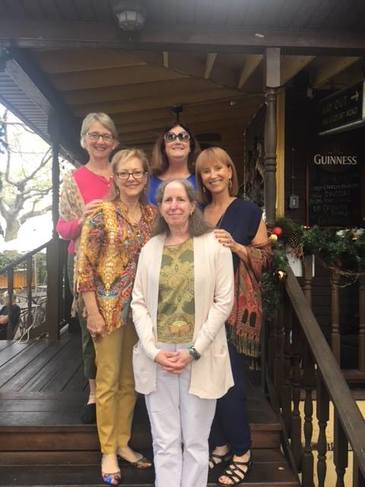 The Skyway Writers The Skyway Writers I'm a world-class introvert who, except for college, has been perfectly happy creating art by myself without a soul intervening. But the day I realized I wanted to write books for children, I went looking for people with the same goal. I needed to learn and I wasn't prepared to go into debt for an MFA. So I joined the Society of Children's Writers and Illustrators and found a local critique group. That was ten years ago. Not only did I discover writers who were willing to share their knowledge and experience, I found people who accepted and supported me. My critique partners, the Skyway Writers, are committed, compassionate women. We're as dedicated to helping each other succeed as we are to achieving our own goals. We share our stories, our hopes, our devastation over hurtful book reviews, or agents and editors who pass on our projects. As our knowledge evolves, our writing grows stronger through honest, intensive feedback. Today, I consider these women great friends and I can't imagine writing without them. Bolstered by my critique group experience, I fought my reclusive tendencies and dragged myself to SCBWI events. Here in Florida, we have an amazing community of writers. For many years, writing teacher and picture book author, Rob Sanders organized local SCBWI workshops and presentations. No introvert stands a chance when confronted with Rob's charm. He has a smile as warm as Texas and a passion for helping writers achieve their goals. He has now passed his local responsibilities to writing coach Bob Schwartz, but Rob hasn't stopped encouraging writers. At the state level, Florida's Regional SCBWI Advisor, Linda Bernfeld, works year round with a host of dedicated volunteers to support writers. They orchestrate two conferences, gathering some of the publishing industry's best and brightest to teach and inspire Florida writers. Florida SCBWI also provides mentoring opportunities, a website and newsletter, a statewide boot camp, an annual writing contest and a growing list of critique groups. If you visit a conference, you'll see Linda and her team, racing here and there, making sure writers and presenters have what they need. They come to those conferences, determined to make writers' dreams come true. From the start, everyone, and I mean everyone, has been kind and friendly. I'm not sure what it is about children's writers, but if you sit next to one, you've likely made a friend for life. Some are shy like me, some outgoing and engaging. But they all scoot over to welcome new members. And that feeling isn't contained to Florida. SCBWI President Stephen Mooser answers emails as if he's sitting across from you, sipping tea. He and Executive Director Lin Oliver, travel from their homes in California to teach and inspire at our conferences. They offer a fantastic yearly grant contest, opportunities for members to publish articles, poems and illustrations in their magazine The Bulletin, and a place to interact, ask questions, find and form groups on their website. But even with that army of goodwill permeating a decade of SCBWI membership, the child inside me who moved too many times to make friends, hesitated to believe I belonged. Until two weeks ago. It was the weekend of the SCBWI conference in Miami where the results for Florida's 2018 Rising Kite writing contest would be announced. I wasn't able to attend, but encouraged by writing partner Augusta Scattergood, I entered my middle grade book in the contest. Sunday afternoon, my phone pinged. Fellow Skyway writer Teddie Aggeles texted "Look at your email!" I did. There in my inbox was a message from two more Skyway Writers, JC Kato and Janet McLaughlan. They were at the conference, cheering and accepting my award for first place in middle grade fiction. My phone pinged again and I pulled up Facebook to see a photo and congratulations from author/illustrator Fred Koehler: More cheers followed, many, many cheers, from people I knew and people I didn't. I cried happy tears off and on all afternoon. Winning was a great honor and a thrill, but it wasn't the award that overwhelmed me. It was the kindness and love from writing friends. It went straight to my heart and broke that rusty, old lock that chained me to the belief I didn't belong. So, thank you Rob and Dorian Cirrone, for your special efforts to support this reticent writer. Thank you Janet and JC, for cheering my win, accepting my award and pitching my book to an agent. You are the most awesome writing pals. Thank you Fred and Teddie for elevating my Sunday afternoon by announcing my win. Thank you Augusta for always, always encouraging writers to reach for the dream. And last, but in no way least, thank you Linda, Dorian, Linda Shute, your brigade of volunteers and every person who scoots over to make room for shy people. You are a powerful force for good in this world.
|
AuthorI write middle grade and young adult books with a magical twist, and I'm represented by the fabulous Leslie Zampetti at Open Book Literary. Writer Websites
Augusta Scattergood Maggie Stiefvater Rob Sanders Fred Koehler JC Kato Sarah Aronson Kelly Barnhill Linda Urban Kate DiCamillo Jacqueline Woodson Helpful Links SCBWI Agent Query Lorin Oberweger - Freelance Editor Search BlogArchives
May 2020
Categories
All
|




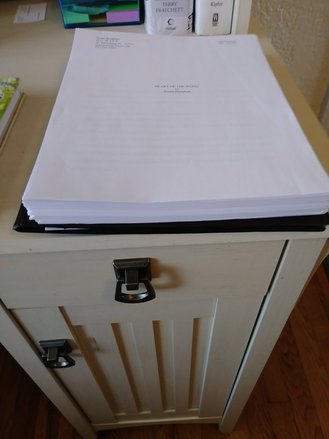
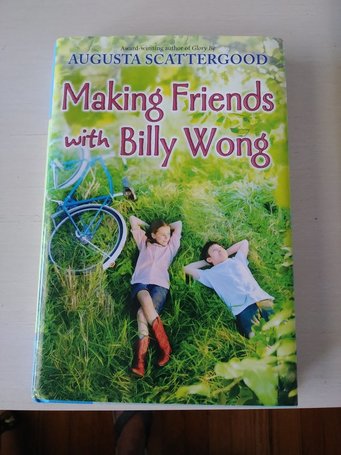
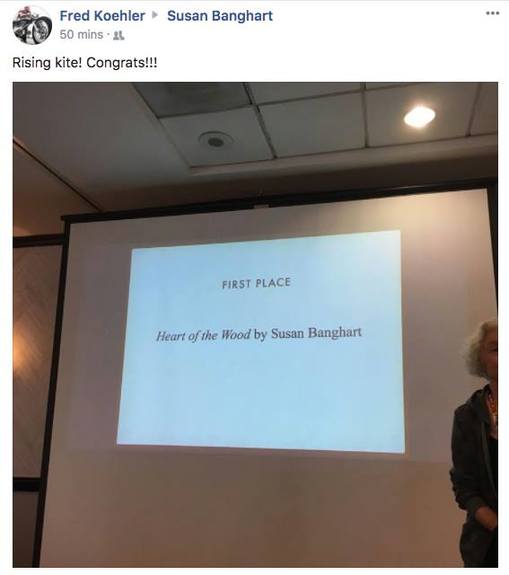
 RSS Feed
RSS Feed
